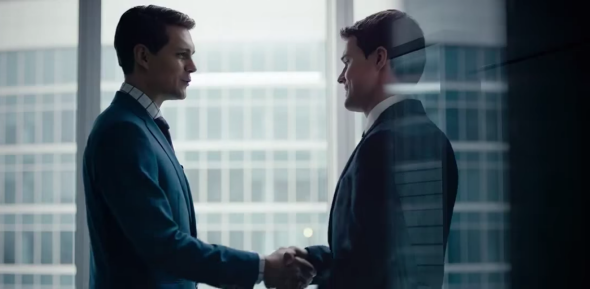This article originally appeared in Vulture.
It says something about Russia’s messy, fitful return to dictatorship that, in the week after the murder of opposition leader Boris Nemtsov, the best performing movie in the country, beating out Focus and Cinderella this past weekend, was a thriller whose villain works deep within the Russian government. Soulless 2 is the sequel to a simpler and gaudier morality tale about a corporate hot shot caught in Moscow’s web of corruption. (Wolf of Wall Street is a decent analogue.) Sequel co-writer Michael Idov, a Russian-American who returned to the motherland three years ago (and used to write for New York), saw only one road back for its hero Max Andreev, who’s been happily cooling his heels in Bali. “Once you start writing a corporate thriller about Russia,” Idov tells us via Skype, “pretty soon you realize the role of the corporation must be played by the state.”
Russia’s so-called “first political blockbuster” has been compared to the Oscar-nominated Leviathan, a much artier tale of Russian corruption, but Idov concedes that Soulless 2 is pure entertainment. (See for yourself from the trailer, which is untranslated but speaks the universal language of babes, Ferraris, glass towers, and deep bass). Max finds himself pulled back into the Moscow highlife, conscripted to spy for the government on an allegedly corrupt VC fund of sorts. By the end, he’s realized the government kleptocracy is just out for its own piece (which happens) and turned himself into a double agent. His new enemy, the defense minister, is modeled on Igor Sechin, a close ally of Vladimir Putin.
Max’s anti-government stance unquestionably tapped a well of Russian suspicion; Idov remembers seeing robust applause at a press screening over the line, “There are no witnesses in this country, only the accused.” But the most controversial scenes come toward the end, when a blurry, Putin-esque head of state whispers a proposal into Max’s ear that the audience can’t hear. Max promises to consider it, and in the next and final scene, he appears to be leading a rally. Is he an opposition figure now, or a government-backed candidate for higher office? Or is he masquerading as a protest leader but actually serving the president (which happens)?
It’s hard to say how much of the movie’s boffo weekend (close to $4 million—half what it would have been before the ruble’s collapse) is a political statement. “I don’t think anyone was buying tickets in protest, per se,” says Idov. But he notes that Moscow was over-represented in the grosses. “A lot of people who haven’t watched the first movie are coming to see this one,” he says. “Russian people of a certain class, with a certain set of problems and aspirations, don’t tend to see themselves depicted in cinema at all. And that includes the urban middle class that went out to protest Putin in 2011 and 2012.”
Whether on the streets or at the movies, protest seems to get dicier every year. Idov is relieved to have nixed an earlier version of the script, which ends with a view of Max through a sniper’s crosshairs. “Thank fucking God we didn’t put that into the movie,” he says. After Nemtsov’s murder, “it would make me queasy.” In any case, Russia’s escalating troubles—economic, political, and international—almost make the corruption plot seem quaint. “The action really takes place in this kind of synthetic 2013 Moscow,” Idov says. “Because no movie can keep up with these twists and turns.”
Still, how did Soulless 2, which like many movies relies on government funding, ever get made in the first place? Idov attributes it partly to Putin’s still-sloppy grip: “The thing I’m afraid of most in Russia is not anybody’s ill will—it’s crossed wires and chaos.” Idov was hired to write some Russian dialogue for Victor Petrov, the fictional Russian president in this season of House of Cards. He found that leader’s “ruthless evil efficiency” a stark contrast to the actual country’s “staggering levels of incompetence.”
Another reason the movie might have appealed to the state is that “the moral of the movie is, do not run away from Russia’s problems—stay and fix them.” Better to muddle on in icy Moscow than flee (with your funds) to Bali. “If you look at it this way,” Idov says, “the movie is quite patriotic, even by Putin’s standards. Because the idea of corruption isn’t as scary as the idea that anyone with brains and money will simply leave Russia.” Next month, Idov and his family are relocating, at least temporarily, to Berlin.
See also: Lars Mikkelsen on Playing Frank Underwood’s Russian Opponent and a Possible Hannibal Cameo
